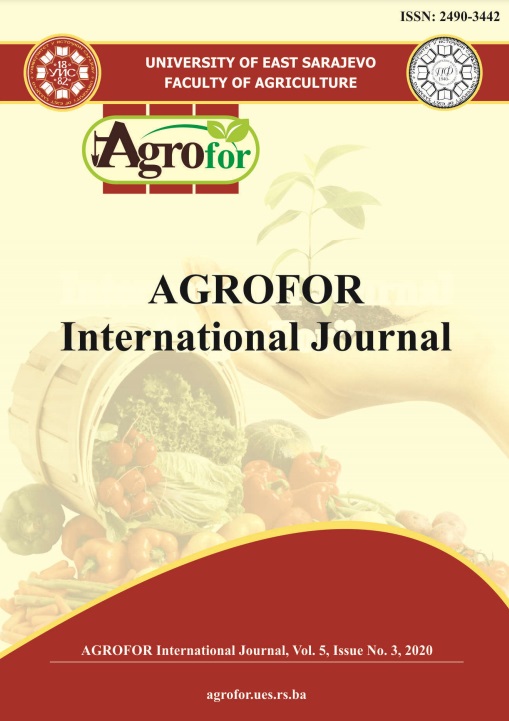PASTORALISM IN THE MAGHREB: A REVIEW ON ENVIRONMENTAL, SOCIO-CULTURAL, ECONOMIC AND POLITICAL ASPECTS
DOI:
https://doi.org/10.7251/AGRENG2003105EAbstract
Pastoralism is a livelihood system based on extensive production of livestock (e.g.
cattle, sheep, goats, camels) mainly on marginal lands. It is a traditional activity in
the Mediterranean in general and the Maghreb (viz. Algeria, Morocco, Tunisia) in
particular. This review casts light on research regarding pastoralism in the
Maghreb. In particular, the paper analyses the benefits of pastoralism as well as the
challenges faced by pastoralists in the region from the environmental, sociocultural,
economic and political points of views. A search performed in July 2020
on the Web of Science yielded 113 documents and 68 of them were included in the
systematic review. The analysed literature emphasizes the negative impacts of
pastoralism and the challenges faced by pastoral communities in the Maghreb.
These include climate change, land degradation and desertification, poverty and
livelihood vulnerability as well as the ongoing erosion of pastoral culture and
traditions. Doing so, scholars question the future of pastoralism in the region and
highlight the need for its adaptation and transformation through, among others,
moving towards agro-pastoral systems. There is a dearth of articles that highlight
the positive impacts and benefits of pastoralism in the Maghreb. However, the
literature shows that pastoralism has a long tradition and is an integral part of the
Maghrebi culture and history, and values the traditional knowledge of pastoralists
as well as their adaptive capacity. The review shows that there is a gap in research
on pastoralism in the Maghreb especially regarding economics. In this context,
regional projects such as PACTORES (Pastoral ACTORs, Ecosystem services and
Society as key elements of agro-pastoral systems in the Mediterranean) result
crucial to bridge the current knowledge gap and foster the sustainable development
of pastoralism in the Maghreb and the Mediterranean at large.

